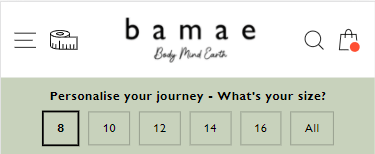Earlier this year, Facebook announced they would be launching an Instagram for children 13 and under. This decision was made in hopes of stopping young people lying about their age, as well as regulating content children are consuming online.
Why should we care?

At surface level, some may feel apathetic towards this, especially those who may not have children around them.
My childhood consisted of playing outside with my friends, knocking on their door to see if they were coming out to play, making grass soup and playing schools. Social media didn’t become a ‘thing’ until I was older, and I’m very thankful for that as it gave me a chance to form my identity without interference from digital streams.
Despite me having this time to flourish as a child, I still struggle with comparing myself to others, and social media is often the root of this. Now, imagine taking this same feeling and applying it to an 8-year-old. Facebook’s announcement was met with backlash from the public, and quite rightly so. Our generation is still dealing with the consequences of social media, so to introduce this to children is something that will affect future generations in ways we may not understand. In my opinion, once this is approved the damage will be irreversible.
Instagram is primarily a visual sharing app, meaning children will be encouraged to share pictures and videos of their life in exchange for likes, comments and shares, exposing them to the concept of social validation and gratification. This concept is specifically dangerous for younger girls as adolescents report feeling pressured to post sexualised content in order to gain attention online (I).
Facebook under fire

In recent light, a Facebook whistle-blower, Frances Haugen, leaked hundreds of pages of internal documents, some of them holding shocking statistics (II). One finding detailed 13.5% of teenage girls say Instagram makes suicidal thoughts worse, and 17% say they make eating disorders worse. She revealed that Facebook research acknowledges this content make young women more depressed, and as a result it leads them to using the app more. The internal documents also state that Instagram is distinctly worse than other social media platforms for this reason. Whilst having this research, Frances states that in order to make the app safer this would mean incurring a loss in profit, something that Facebook are not willing to do.
Introducing Instagram to children when Facebook have this research is careless, greedy and incredibly worrying. Realistically, creating a platform for children will not only divert the problem, but it’ll also hook younger children onto social media. Older children will not stop lying about their age to get onto Instagram, meaning the real demographic for this new platform could be children as young as 6.
Social media is addictive by design – this will be no different with kids. You can read exactly why social media is so addictive here. Excessive screen use in children has been linked to obesity, lower psychological wellbeing, decreased happiness, decreased quality of sleep, increased risk of depression and increase in suicidal thoughts and attempts (III).
Addictiveness aside, let’s not forget that kids can be very mean; cliques and bullying are ripe in our schools today. Approximately 1 in 5 children experience cyberbullying – and these are only the reported statistics (VI). This figure will only increase further as younger children are exposed to the virtual world. Creating an Instagram for kids would not only divert this bullying to another platform, but would expose children to adult concepts and effect their ability to navigate social challenges. Social media would also increase FOMO and induce anxiety and loneliness within kids.
As well as all of this, this platform would become a safety hazard for children, as they would be more vulnerable to exploitation from predators. Data gathered by the NSPCC found that more children were being groomed on Instagram than any other platform (VII). The NSPCC stated that these statistics didn’t reflect the full extent of the issue as many incidents remain unreported or undetected.
In 2019, Facebook underwent backlash for allowing children to speak to strangers in relation to their ‘Messenger Kids’ app. The app was made around the premise of children not being able to speak to people who were not approved by their parents. However, these authorisations didn’t apply in group chats, meaning children could chat to unauthorised users which could invite predators with malicious intent.
Regulation of this app is also unclear. Whilst the Instagram for Kids claims to be ‘ad free’ and show age-appropriate content (VI), the charity ‘Campaign for a Commercial Free Childhood’ (CCFC) state:
Young people are highly persuadable by algorithmic prediction of what they might click on next, and we are very concerned about how automated decision making would determine what children see and experience on a kids’ Instagram platform (VIII).
There are so many reasons why this is a bad idea, however this article only scratches the surface. In the last few months Facebook have been a point for controversy for withholding key research into Instagram and the link between a decline in mental health. The charity CCFC have written an open letter to Mark Zuckerberg compiling research that indicates why they shouldn’t launch an Instagram for kids.
If you’re interested in reading further as to why social media can be so detrimental, you can read about why it distorts reality and affects our mental health here.




